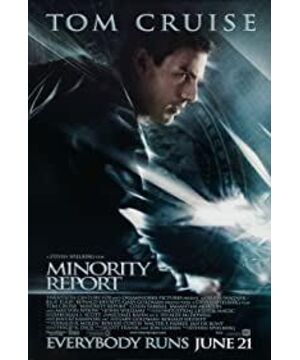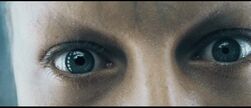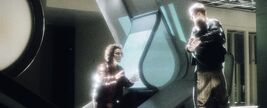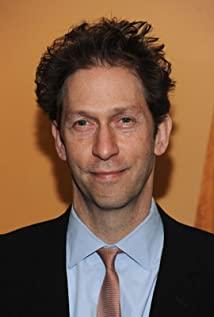"Minority Report" is adapted from the short story of the same name by American science fiction writer Philip Dick. The film tells the story of New York, USA in 2054. The authorities established a "crime prevention system" using "prophets" who could predict the occurrence of violent crimes to prevent impending crimes and arrest those who may or are committing crimes. This system enables the local The criminal crime rate has dropped to the lowest point in history, and the story is that the agent of the "Crime Prevention Bureau" was foreseeing that he was about to shoot a stranger, so he tried every means to prove his innocence.
In principle, this is a science fiction movie, but it involves extremely basic legal issues. As a student of law and criminology, the author will naturally enjoy this aspect: What is crime? Is the thought criminal also a crime? Can a crime that has not occurred be considered a crime? How to punish crimes that have not occurred? If criminals of thought are criminally investigated, what changes will happen to society?
The "inevitability" of crime?
I have no intention of logically combing and analyzing the specific plot of the entire movie, nor do I need to discuss the possibility and rationality of predicting the existence of this superpower in the future, because there are enough film reviews for the logical loopholes of the film. The entire plot in the movie is based on the "crime prevention system", and although predicting the future is a common bridge segment in science fiction films, but only foreseeing future crimes, how to prove the inevitability of its imminent occurrence?
For this problem, the agent played by Tom Cruise in the film used the gravity of the earth to make an analogy-he rolled a wooden ball from the table to the edge, and the wooden ball was caught and did not fall to the ground; this ball Under the action of gravity, falling to the ground is inevitable. Because of the intervention of external forces, this "inevitable" event has ceased, but you can't deny the inevitability of the wooden ball falling to the ground. In the same way, an impending crime is intervened and prevented by the police, and it cannot be denied the inevitability of the crime as usual on another timeline. Therefore, it is completely "reasonable" for the Crime Prevention Bureau to crack down on crimes that have not occurred.
In this concept-based science fiction film, all the theoretical support is only based on this irresponsible metaphor. This can be said to have been criticized, and we might as well discuss it from the objective and subjective aspects.
Objectively speaking, from the theory of criminal law, the forms of crime include preparation for crime, attempted crime, suspension of crime, and completion of crime. According to the film, the "crime prevention system" can predict premeditated crimes two weeks in advance, and can basically kill them at the stage of crime preparation; for temporary crimes, the "prophet" can only predict a period of time in advance. A short period of time foresight, and the foreseeable scene is a scene where a violent crime is "imminent and inevitable". The police can only locate the suspect based on the scattered clues in the clip, stop the crime in time, and arrest the suspect. This is the beginning of the film. Scene.
In this way, in fact, this system can foresee only two types: violent crimes that are in the stage of preparing a crime, premeditated and prepared, and finally completed, and violent crimes that are temporarily intent and finally completed. This creates a problem-the crimes punished by the criminal law include the above four types of crimes. This is because regardless of the actual result, the crime has violated the protected legal interests to some extent, even if it is an attempted crime or a crime. The form of suspension should also be evaluated as an act that violates legal interests and should be subject to criminal investigation, but none of these can be foreseen by the "prophet."
Subjectively, judging from the current theories of law and criminology, the subjective elements of crime include criminal intention, criminal negligence and innocence. Criminal intention is divided into direct intention and indirect intention, and criminal negligence is divided into overconfident negligence and innocence. There are accidents and force majeure events in negligent negligence and innocence events. In addition, there are also discussions on the error of fact understanding in German and Japanese criminal law theories, including the error of combating, the error of the object, and the error of causality. Through the above analysis, the crimes that can be foreseen by the "prophet" are only part of the direct and intentional violent crime cases, which can be described as a drop in the bucket compared with the entire scope of the criminal law.
In addition, the suspension of crime also includes the suspension of the execution before the end of the act and the suspension before the end of the execution and the actual result. The appearance of the "crime prevention bureau" has completely obliterated the existence of these two forms, and the suspension of the crime The plot is extremely critical when the judge judges the subjective malignancy of the criminal suspect, so this is also very unfair to the perpetrator himself. Moreover, the human inner world is changing rapidly, and it is impossible to explain it with the theory of the wooden ball landing. What the "prophet" shows is only the final fragment of the case, and cannot perceive the psychological changes of the parties, let alone the whole picture of the whole case. The police used this as a basis to arrest citizens. It is no wonder that the middle-aged man in the opening movie shouted "doing nothing" when he was subdued, because he did not actually commit any crimes.
Even if the "crime prevention system" brags about its perfection and effectively reduces the crime rate, it cannot guarantee substantive justice in various complicated situations, and it is not the ultimate means to end crime. Moreover, there is a plot in the movie where the director uses the "prophet" phenomenon to commit an unknown crime, which in itself has proved that the system has a fatal loophole.
"Prophet" and jury
"crime prevention system" There is another thing worth noting: this system is not a simple machine, it relies on three humans with predictive ability to function, and these three "prophets" are missing one. Not possible. However, the three people’s opinion is that what they foresee is not always exactly the same, and it is often the most capable female "prophet" who foresees different fragments, but in order to ensure conviction, these "minority reports" It was deleted artificially, which is also the source of the title of the film.
I find it interesting that the setting of the three "prophets" in the movie can be compared to the jury system in the Common Law system. The members of the jury come from all walks of life in society. They generally do not have professional legal knowledge. The jury system requires them to make judgments based on the known facts about the case, and take the general moral standards of society as the criterion to make judgments on the defendant. The verdict of guilty or not guilty; and based on historical origins, the opinions of the jury members must be unanimous in order to be legally binding.
Similarly, the "prophets" themselves do not have any legal literacy. What they only possess is the ability to predict the occurrence of crimes and present them to the state's violent agencies, instead of evaluating a certain behavior according to current legal regulations and moral standards. However, they have become the basis for the state machinery to impose compulsory measures to restrict personal freedom on a certain citizen; moreover, in order to ensure that the perpetrator is sentenced, in order to maintain the perfect appearance of the "crime prevention system", those in power will foreshadow violence. The "minority report" that has another possibility of crime has been deleted privately. This move has undoubtedly completely deviated from the principles of the supremacy of human rights and the independence of the rule of law advertised by the United States, and it is even evil in the basic moral view of all mankind.
Of course, the "prophet" is not a judge or a jury, but their power already encompasses the scope of prosecutors and investigative agencies. The "crime prevention system" may be a leap from a scientific point of view, but it is undoubtedly a great retrogression for legal theory.
The law that punishes thought criminals takes a
step back. From a macro perspective, the description of punishment in this movie is already a subversion of all theories of law at home and abroad. These "criminals" who have not committed any actual crimes will be sentenced, and then It is a prison sentence of freedom, and it is a kind of imprisonment in a dormant state. You will never find such a system in any legal works, even the most extreme theories.
The law adjusts social relations, and the criminal law punishes criminal acts, not ideas that have never been implemented. When there is no substantial change in social relations and crimes only exist in consciousness, the state violent organs have imposed sanctions on members of society. This is naked conscious criminals and ideological criminals. If the criminal law also penalizes criminal consciousness, The results of criminal acts are the same whether they are committed or not. More people will turn their criminal intentions into actual criminal acts. In this way, does the criminal law have the suspicion of encouraging crimes?
Based on this criminal policy, we might as well imagine that, in addition to the utopian ideal state in the movie, the entire society is more likely to undergo a huge change: the crime rate no longer has practical significance, because crime only exists in people's thoughts and the future. Among the possibilities, the police are exhausted in order to arrest criminals of thought, and everyone in the streets is at risk. Everyone may become a "criminal" being pursued in the next moment, while the powerful and politicians can use the loopholes in the system to get away with impunity. Such a country may still be normal. Does the earth exist for a day?
Returning to the film, the "crime prevention system" cannot escape the fate of bankruptcy at the end. This is also an inevitability, just as the "prophet" foresaw the inevitability of crimes, because this is a regression of the rule of law and a retrograde of the development of human history. , Its demise is inevitable. In fact, the movie has already given an explanation: even the perfect system has flaws, and the problem often lies not in the system, but in the person himself.
Putting aside all kinds of nitpicking, it can make people think about it in all aspects. Doesn't it mean that "Minority Report" is a successful commercial film? Making such a sloppy legal evaluation of a science fiction film can only be said to be an over-explanation by a law student. Everybody laughed.
View more about Minority Report reviews











